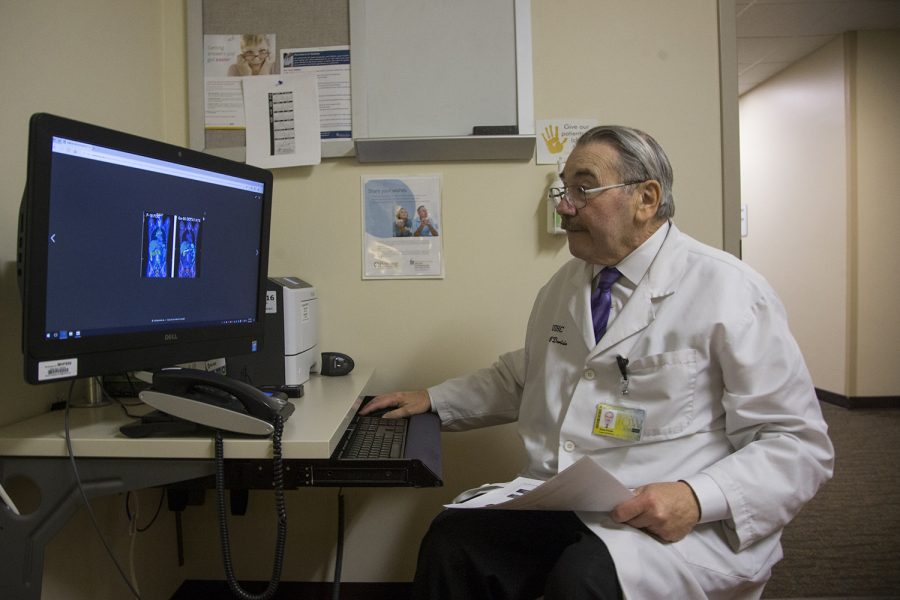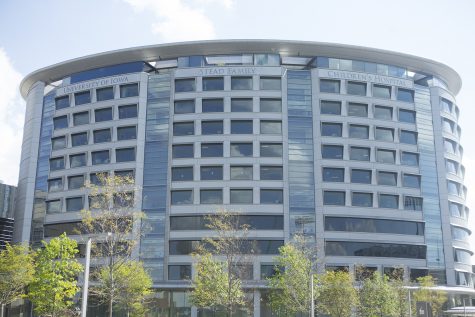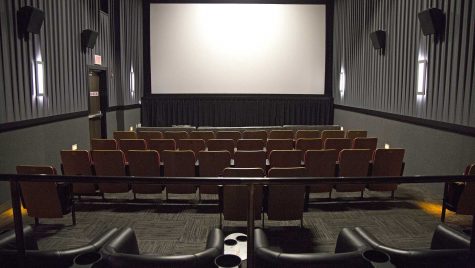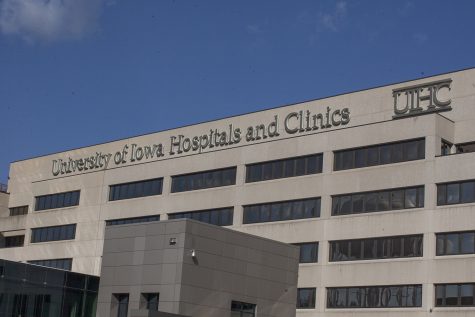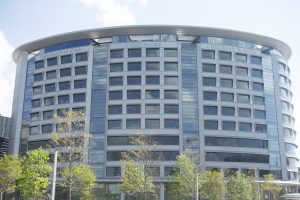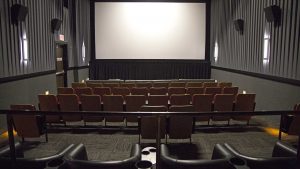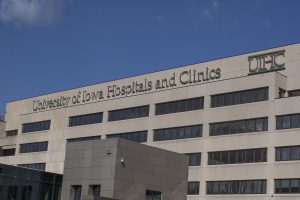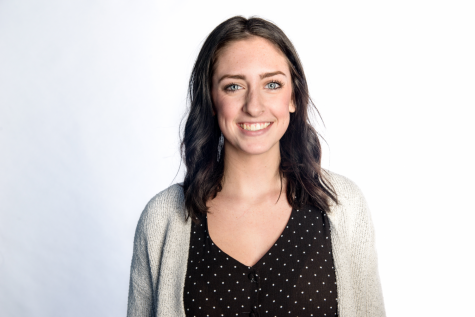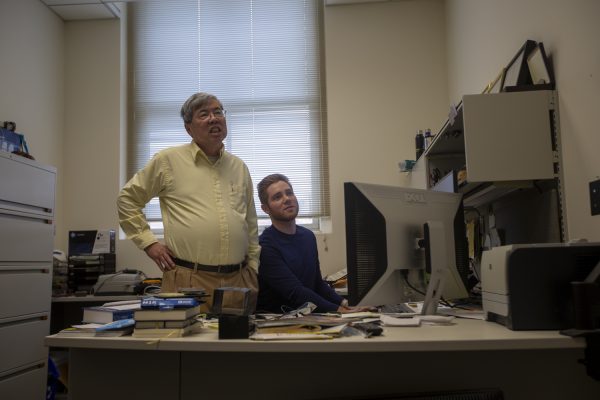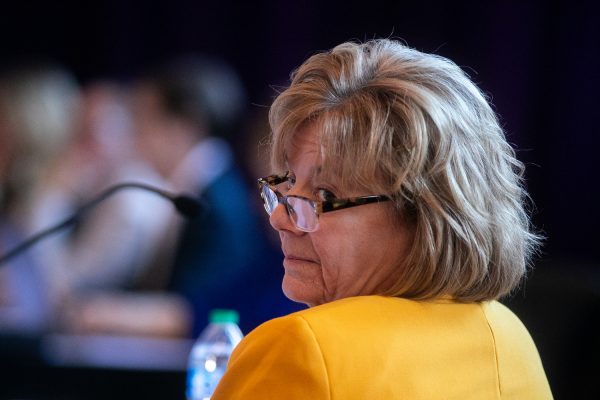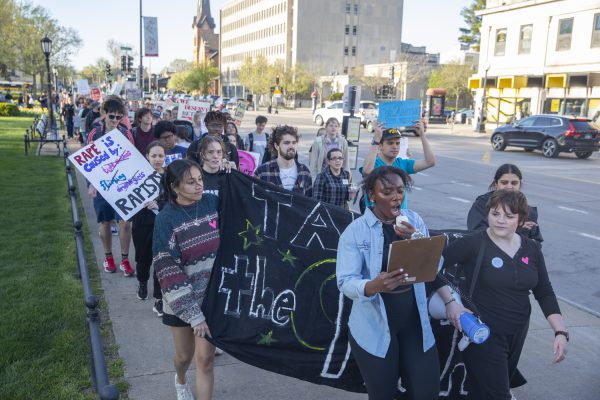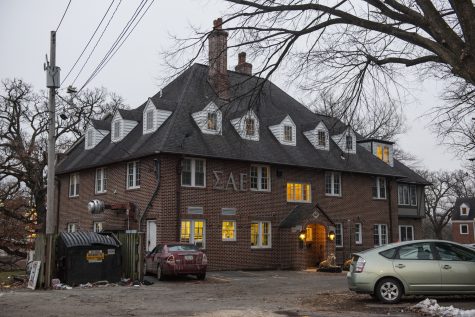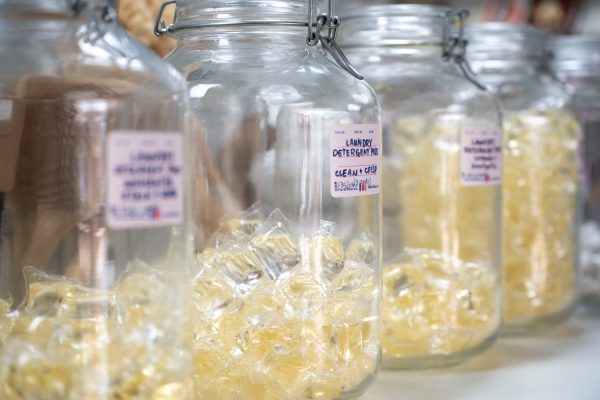Neuroendocrine tumor program at Holden recognized as Center of Excellence
Thomas O’Dorisio established a neuroendocrine tumor clinic at Holden in 1999. Twenty years later, they are the first in the U.S. to be designated a Neuroendocrine Tumor Center of Excellence by the European Neuroendocrine Tumor Society.
Dr. Tom O’Dorisio of the Holden Comprehensive Cancer Center explains a Gallium 68 PET Scan on April 1, 2019. Dr. O’Dorisio is just one of a team of doctors in the Holden center who have been working with PRRT (Peptide Receptor Radionuclide Therapy), a treatment only done by the center
April 4, 2019
Twenty years after its start in at the University of Iowa, the Neuroendocrine Tumor Program at the Holden Comprehensive Cancer Center is the first in North America to be designated a Neuroendocrine Tumor Center of Excellence by the European Neuroendocrine Tumor Society.
Endocrinologist Thomas O’Dorisio and his wife, medical oncologist Sue O’Dorisio, came to Iowa City in 1999. Immediately, Thomas O’Dorisio started the clinic.
Surgical oncologist James Howe joined, and the Holden Center hosted two neuroendocrine tumor clinics per week. Today, there are 10 per week and a full interdisciplinary medical staff working on patients with rare tumors.
In 2015, Sue O’Dorisio applied for the Specialized Projects and Research Excellence Grant through the National Cancer Institute. The Holden program put in the grant, and it received funding for five years. To date, this is the only grant of its kind to be awarded in relation to neuroendocrine tumors.
“People have come from all over the country to our clinic, because we have unique clinical trials and an aggressive way of managing these patients,” Howe said. “A lot of places don’t have the resources we have in many different areas.”
The European group is the oldest society dedicated to neuroendocrine tumors worldwide, Thomas O’Dorisio said. It began a certification program 12 years ago to recognize and deem Centers of Excellence. Thomas O’Dorisio wrote colleagues after doing research, explaining that Holden would be a great fit. Then they began the process of applying.
Some of European criteria include clinical research projects, special projects with patients, safe protocols, number of patients partaking in studies, and having a multidisciplinary team. Thomas O’Dorisio used Sue O’Dorisio’s grant as a way to highlight the program’s accomplishments, he said.
RELATED: Child receiving experimental treatment from UIHC flies frequently from Minnesota to Iowa
One thing that needed to be improved were tumor boards. A team of interdisciplinary doctors looks at a patient’s case together and strategizes about the best treatment approach. Holden had tumor board reviews 60 percent of the time patients came to the clinic, but the European society requires such action every time they arrive. The program immediately changed and added another tumor board review to keep up with patients’ needs.
“That was one of the most humbling things for me personally, because as good as we thought we were, we had to make some modifications to meet qualifications,” Thomas O’Dorisio said.
He was told the longest the UI program could be accredited, if approved, was three years. In August, the European staff traveled from Sweden to the UI to spend the day at the clinic. The Europeans audited them on the spot, he said, and awarded Holden a five-year designation.
Ashly Lagneaux, the operations manager for the clinical cancer center, had a heavy part in the application process.
“This is allowing us to have the light shine on something we already had,” Lagneaux said. “It puts our name in lights. It allows patients to find us, and we know once they are here, they are taken care of in a way that is needed.”
Sue O’Dorisio is working on reapplying for the 2015 grant she received. The program will use the European designation as proof of qualification for another five years of funding.
“I think it should be mentioned the research that has gone into this cancer tumor type for the last couple of decades,” Lagneaux said. “It has been immeasurable in terms of getting us where we are today. It allows us to be the highly specialized center that we are.”



